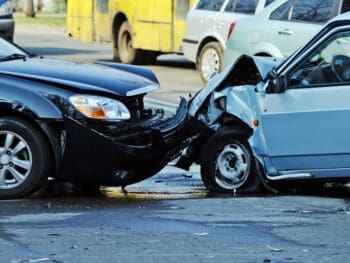The Fire Brigades Union (FBU) recently called on London Fire Brigade bosses to give greater commitment to the safety of its firefighters after a damning report by the Health and Safety Executive (HSE) identified several failings.
The report by the HSE was a follow-up exercise focusing specifically on areas of concern which arose following the deaths of two London firefighters – Bill Faust and Adam Meere – at a fire in Bethnal Green in 2004. While improvements had been identified in some areas, in others the lessons have not been learned. (WCxKit)
The report, made public by the Fire Brigades Union, highlights thirteen areas for improvement, including the need for better training in the use of breathing apparatus. The HSE has told London Fire Brigade to come up with an action plan to address the shortcomings.
Key points from the report include:
1. A widespread view by firefighters that training in core firefighting skills had taken a back seat to “community work;”
2. Concerns over the quality and frequency of training in the “risk critical” area of use of breathing apparatus while tackling fires;
3. Demands by firefighters for better training often going unheeded by bosses;
4. Officers expected to deliver training often complain that they have received insufficient training themselves;
5. A lack of facilities for “real fire training,” which would simulate real-life firefighting scenarios.
The FBU’s regional health and safety co-coordinator Gordon Fielden said, “This very disturbing report puts the London Fire Brigade on notice that it must do much more to protect its firefighters from danger while they are at work.
We are especially alarmed over the many concerns raised by the HSE over the inadequacy of breathing apparatus training. This is the most critical part of a firefighter’s job and one that can make the difference between lives being lost or saved. The London Fire Brigade expects its firefighters to put their lives on the line to rescue others. The very least it can do is to make sure it gives them the very best training to do their jobs. But it is failing and the result of that failure could well be lives lost.
“We have been arguing for a long time that training in core firefighting skills is being sacrificed to allow for more extensive work in the community. Community work has its place, but is wrong and dangerous for the brigade not to make basic training the priority.
“Previously the brigade has audited itself in some of these areas, and not surprisingly those audits produced glowing conclusions and an outpouring of self-congratulation. But it has taken an independent body to show that those audits were a charade. (WCxKit)
“Now the brigade has been handed an action plan for its failings. The chairman of the fire authority, Councilor Brian Coleman, has been very quick in the past to bathe in the glow of perceived success. Now he needs to take responsibility for these serious failings,” Fielden added.
Author Robert Elliott, executive vice president, Amaxx Risk Solutions, Inc. has worked successfully for 20 years with many industries to reduce Workers Compensation costs, including airlines, healthcare, printing/publishing, pharmaceuticals, retail, hospitality and manufacturing. See www.LowerWC.com for more information. Contact: Info@ReduceYourWorkersComp.com.
WORK COMP CALCULATOR: www.LowerWC.com/calculator.php
MODIFIED DUTY CALCULATOR: www.LowerWC.com/transitional-duty-cost-calculator.php
SUBSCRIBE: Workers Comp Resource Center Newsletter
Do not use this information without independent verification. All state laws vary. You should consult with your insurance broker or agent about workers comp issues.
©2011 Amaxx Risk Solutions, Inc. All rights reserved under International Copyright Law. If you would like permission to reprint this material, contact Info@ReduceYourWorkersComp.com.


















